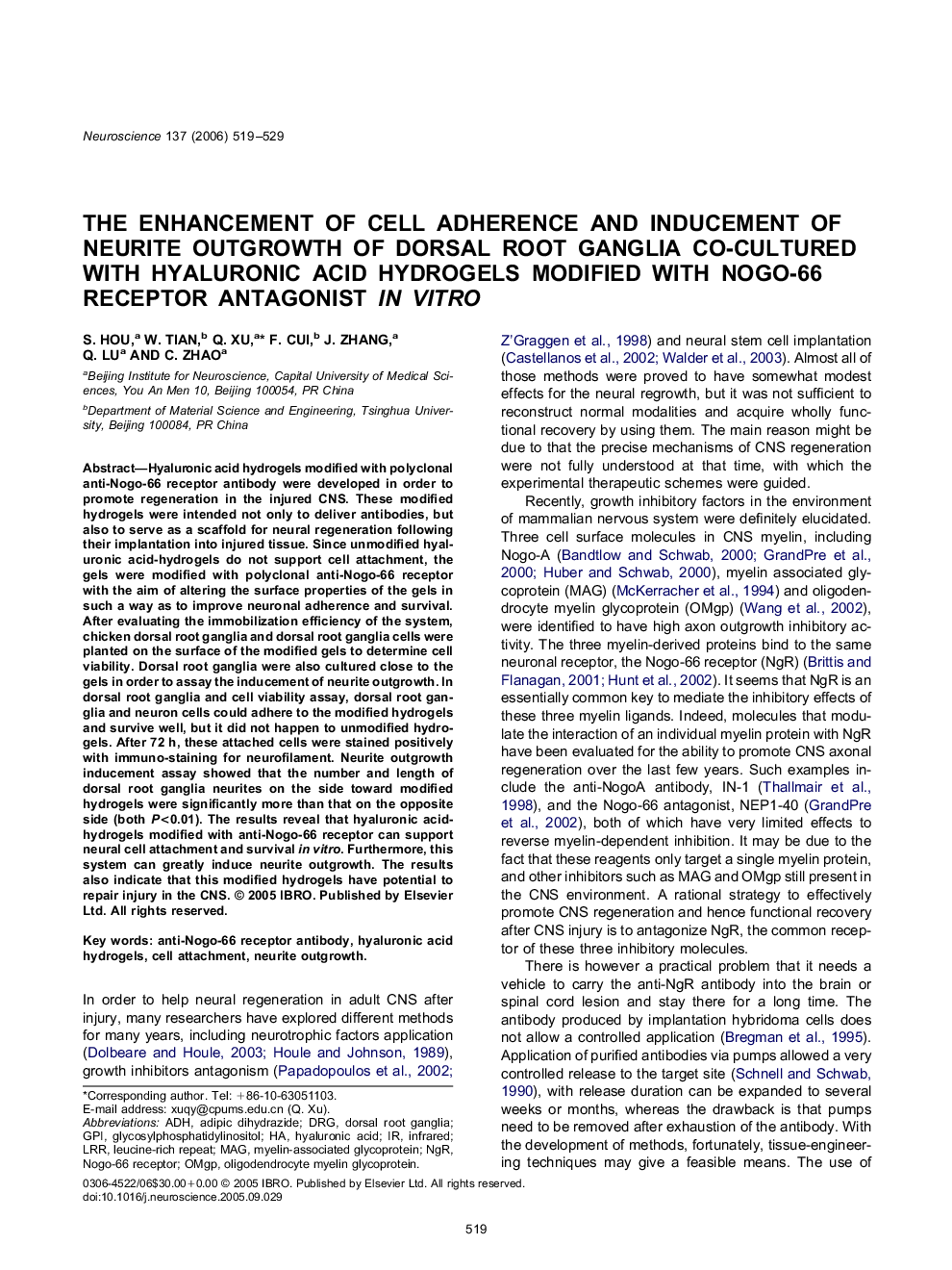| Article ID | Journal | Published Year | Pages | File Type |
|---|---|---|---|---|
| 4342847 | Neuroscience | 2006 | 11 Pages |
Hyaluronic acid hydrogels modified with polyclonal anti-Nogo-66 receptor antibody were developed in order to promote regeneration in the injured CNS. These modified hydrogels were intended not only to deliver antibodies, but also to serve as a scaffold for neural regeneration following their implantation into injured tissue. Since unmodified hyaluronic acid-hydrogels do not support cell attachment, the gels were modified with polyclonal anti-Nogo-66 receptor with the aim of altering the surface properties of the gels in such a way as to improve neuronal adherence and survival. After evaluating the immobilization efficiency of the system, chicken dorsal root ganglia and dorsal root ganglia cells were planted on the surface of the modified gels to determine cell viability. Dorsal root ganglia were also cultured close to the gels in order to assay the inducement of neurite outgrowth. In dorsal root ganglia and cell viability assay, dorsal root ganglia and neuron cells could adhere to the modified hydrogels and survive well, but it did not happen to unmodified hydrogels. After 72 h, these attached cells were stained positively with immuno-staining for neurofilament. Neurite outgrowth inducement assay showed that the number and length of dorsal root ganglia neurites on the side toward modified hydrogels were significantly more than that on the opposite side (both P<0.01). The results reveal that hyaluronic acid-hydrogels modified with anti-Nogo-66 receptor can support neural cell attachment and survival in vitro. Furthermore, this system can greatly induce neurite outgrowth. The results also indicate that this modified hydrogels have potential to repair injury in the CNS.
